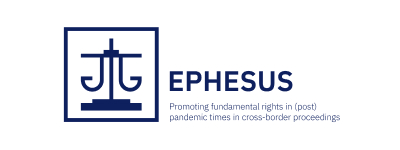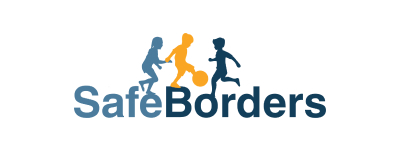The online database on pre-trial supervision measures covers Bulgaria, Greece, Portugal, Romania, and Spain, providing insights into how these Member States apply pre-trial supervision measures. This is the newest resource out of the IPS-partnered EPHESUS initiative, which has released a collection of guiding resources designed to help legal practitioners deepen their understanding of alternative instruments to the European Arrest Warrant (EAW).
The EPHESUS ESO database is a comprehensive and practical resource designed for judges, prosecutors, lawyers, probation officers, researchers, and all professionals involved in cross-border judicial cooperation.
It provides clear, comparative insights into how different EU Member States apply pre-trial supervision measures, including who the competent authorities are, what measures are available, the procedural steps, languages, and timelines.
With this information at hand, judges, prosecutors, and defence lawyers can explore the viability of implementing the European Supervision Order (Council Framework Decision 2009/829/JHA) with confidence, keep defendants supervised in their home country where suitable, and make more proportionate decisions in cross-border cases—reducing unnecessary detention and over-reliance on the EAW.
Reducing overreliance on pre-trial detention and the EAW
The initiative addresses a pressing issue in cross-border criminal justice: the excessive use of pre-trial detention and the EAW in situations where alternative measures would be appropriate. By promoting awareness and practical use of the European Supervision Order, the database aims to strengthen mutual trust between Member States and ensure greater proportionality in the administration of justice.
In addition to this database, the EPHESUS project offers a collection of other guiding resources for legal practitioners seeking to deepen their understanding of instruments which can offer more proportionate alternatives to the use of the EAW.
Drawing on interviews with judicial professionals, an assessment of Covid-19-related adaptations in EAW practice, and a review of real cases where alternative measures were applied, the Common Framework on Alternative Instruments provides a broader, structured set of guidelines to support the use of alternative mutual recognition instruments, helping practitioners apply them confidently and consistently. It clarifies when and how these can be used in practice and outlines methods to make their application more straightforward.
Further resources, available on the project’s website, explore and explain individual mutual recognition instruments that support cross-border judicial cooperation in the EU, including:
European Supervision, Investigation, and Probation Orders
Framework Decision 2008/909 (transfer of prison sentences)
Mutual Assistance in Criminal Matters between EU countries
Freezing and Confiscation Orders
The collection is complemented by a glossary for the European Investigation Order, offering clear definitions of key principles and legal provisions to support practical understanding and consistent application across Member States.
Together, these insights offer a consolidated view of how alternatives can operate effectively, helping to integrate them into daily judicial cooperation to support a shift toward a more balanced approach in cross-border justice.
Learn more about this project

EPHESUS
Promoting fundamental rights in (post) pandemic times in cross-border proceedings
The consortium developing this European initiative is led by the Centre for European Constitutional Law (Greece) and is partnered by IPS_Innovative Prison Systems (Portugal), the University of Seville (Spain) the Center for the Study of Democracy (Bulgaria), and European Strategies Consulting (Romania).
Related projects

SafeBorders
Strengthening Judicial expertise and Frontline support to combat Child Trafficking

REUNION
Rehabilitation of foreign inmates within the scope of FD 2008/909/JHA

PRE-TRIAD
Alternative pre-trial detention measures: Judicial awareness and cooperation towards the realisation of common standards

PRE-RIGHTS
Assessing the impact and performance of preventive measures on EU Directives and Framework Decisions

NO-OBLIVION
Promoting Universal Jurisdiction while Evoking the Crimes Committed within the Former Yugoslavia

MIRAD
Multi-Ideological Radicalisation Assessment towards Disengagement

JCAP
Judicial cooperation for the enhancement of mutual recognition regarding probation measures and alternative sanctions

J-CAP Next
Judicial cooperation for the enhancement of mutual recognition regarding probation measures and alternative sanctions – EPP software 3.0
Related news





